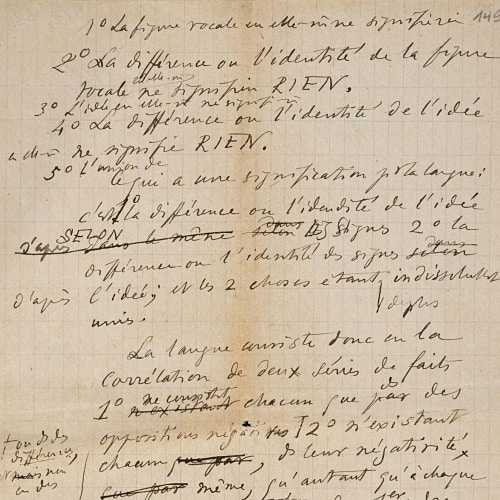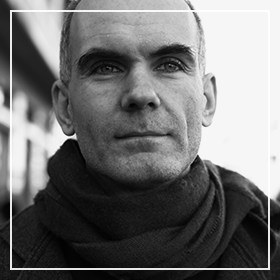The “publish or perish” imperative in academia is periodically debated in the newspapers. I think some distance should be taken from the arguments developed in such articles. Even though they provide an entry point into a complex issue, my impression is that we have to go even further back since these discourses are in fact embedded within an ideology of production. Discourses around the academic system of publications and their use to determine a researcher’s value and her capacity to obtain research grants continue to be inscribed in this same productive paradigm. I may be naive, but I feel that this discourse must be totally rejected.
My view is that we should take a step back and distance ourselves from such ideas, both because they do not take into account certain aspects of the writing process, and because they contradict an attitude inherent in the ‘movements of the mind’ and certain practices which seem to me fundamental and which determine the very possibility of producing a scientific text (and a text in general). To begin with, we can take as an example the link between reading and writing, as well as the nature of the writing process itself.
In my opinion – informed by my own academic experience – institutions funded by citizens’ taxes should pay researchers to read, not to write.
Writing is an auxiliary and should be used in connection with the activity of reading. Writing is actually a means to read: it is a reading instrument, as evidenced for example by references, annotations, reading sheets, comments and glosses.
The other reason to pay researchers to read is to enable them to conduct research, that is to say that their research should be carried out for the sake of research. In this case too, the link with writing persists. Writing is a research instrument: research writing is the semiological movement (making sense through signs) that produces discovery, that inscribes ideas on paper, it is an effort to fix ideas and to find coherence; it is that kind of writing that serves to communicate with the results and points of views of others. As in scientific correspondence, writing is a means to share and to value the role of the addressee (the scientific community for example, or the correspondent, the poet’s friend one might say, the fundamentally epistolary nature of writing).
Producing articles for publication, therefore, is not the purpose of writing. The only thing that matters is the act of writing in itself and in connection with reading and research. The act of publishing is accessory and temporary and it is for this reason that editors (once again the poet’s friends) exist: to tear off a piece of writing and inscribe it in a specific moment, in the momentary course of time, when writing has no constraints in itself, the constraints being external and contextual. And even if these constraints contribute to give form to a text – to constantly exceed its limits – and to stop the flow of semiological production, they must always follow the parameters of research (validity, verifiability of data).
It’s not really about finding something. Finding is a consequence of reading and research.
Writing to find something already limits the possibilities of discovery, because discovery is already present in the assumptions used for research purposes. In this sense, I have always found it very strange in research grants applications to be asked to anticipate the results of a research before it has even been carried out.
So I share the idea that you don’t have to write to publish. I publish first to forget and second to look at what I have done during my reading, research and writing work, to look at its harmony, to see if I have come closer to this hoped-for harmony in research through writing. What I have published without keeping this spirit, I consider as a necessary price to pay to know what not to do. And in what I have published and loved, I am also wary of what I have written and what it seems to have accomplished, since my texts often appear as if they have been written by another person who is no longer me, who didn’t know what I know now, and I try to check if, with the passage of time and readings, I still agree with what I wrote, if I still like what I wrote, what that other me thought about writing.
I also pay attention to the life that has elapsed during the writing process and to aspects of these writings that I find difficult to reread. I only want to look at them and try to make them resonate. So if I look at my publications again, the ‘thing’ I cherish is an adverb I used in an article. I do not value the number of published texts and discoveries that, of course, gave me some pleasure, some joy for discovery and that made sense at the time. I look at them as old passions linked to the naiveté of not knowing which ideas will persist in time, of having no idea of their duration.

The best thing to look at in these texts is this adverb, this word that pushed me to think, that I had to look for at length to make me understand today that the whole life of research is in this adverb, in the movement that it indicates, in the passage of a threshold and in the abandonment of rules, in the change introduced in a language normally used in texts of this kind and in overcoming the obstacles posed by history, tradition, prejudice and discipline. It is a signal for me that I have not only changed with the hours spent in the libraries – and changed forever -, not only because of some specific details related to my research work or because of difficult moments I had to face (arrogance, life, you know what I’m talking about), but also because of the search for this meaningful writing.
This adverb here, in this text, reminds me of the transformation I underwent thanks to this research and writing work and why it made sense to do it. The rest is useless, temporary. My intervention is an attempt to disappear. By abandoning the priority of my presence, the text becomes part of a collective of people who are searching, this collective with which I say I am writing. I do not need to go into the details of what it means to write. If I say I am writing a thesis, one immediately understands my state of mind. A collective that cuts across countries and disciplines, that lives at the heart of society and not in its margins. This collective which knows the responsibility and the weight of writing, and which does not live for itself, but also for others who did not have this opportunity, this responsibility to know, to read, this opportunity to have time to do research.
It is therefore necessary to abandon this injunction to production; to say clearly that one is not interested in publication, that it is not necessary to publish to remain in the academic world or to be accepted in it, to have a position, to be funded for a project (even if the idea of submitting project proposals to funding bodies is something we should also refuse as researchers). It is enough to be interested in research itself, in searching for something, in discovery, in the links and interactions between researchers, in the production of a research community, in the independence of thought. It is not the list of publications that counts, I think we need to go deeper and think over long periods of time, and think in terms of a collective, in terms of what makes sense on a scale of shared values. To be part of this research collective within society, one must have demonstrated the courage and the aspiration to be free. To be free requires abandonment and courage.
Courage, freedom and independence must be put back at the centre of discourses about research and at the centre of research itself.
The Magnetic Fields: The Death of Ferdinand de Saussure
Translated from the French by Julie Billaud (Original text in French).





